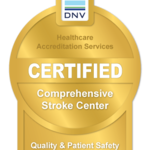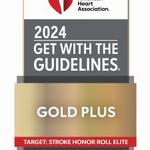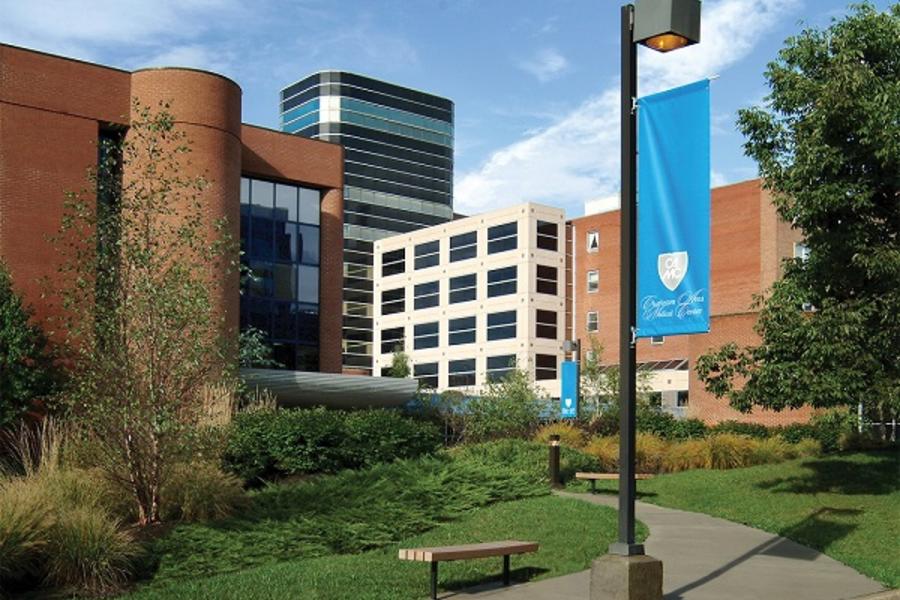Stroke is the No. 5 cause of death in the United States, behind diseases of the heart and cancer.
Our Approach to Stroke Care
As the only Comprehensive Stroke Center in southern West Virginia, CAMC has specially-trained neurosurgeons, neurologists, nurses and other staff, a neuroscience intensive care unit for stroke patients, and the latest imaging capabilities to treat the most complex cases 24 hours a day.
When a patient comes to CAMC for stroke treatment, our stroke team:
- Is notified by EMS crews if a potential stroke patient is on the way
- Evaluates patients within 10 minutes of arrival
- Identifies treatment options and gets them under way as soon as possible upon arrival
What Sets Us Apart

Comprehensive Stroke Center Certification
CAMC is certified as a Comprehensive Stroke Center by DNV Healthcare, demonstrating a commitment to excellence.

Get With The Guidelines® – Stroke Gold Plus Quality Achievement Award
CAMC has received the American Heart Association’s Get With The Guidelines® – Stroke Gold Plus Quality Achievement Award as well as the Association's Target: Stroke Honor Roll Elite citation. These awards recognize the hospital’s commitment to ensuring stroke patients receive the most appropriate treatment according to nationally recognized, research-based guidelines, ultimately leading to more lives saved and reduced disability.

U.S. News & World Report
Named a High Performing Hospital for Stroke in 2023-24 by U.S. News & World Report.

Stroke Care Providers
Stroke care providers employed by CAMC that offer the services represented on this page.
Common Stroke Symptoms
If you notice any of these stroke symptoms or you recognize them in someone else, it is important to call 911 as quickly as possible:
- Sudden numbness or weakness of the face, arm or leg, especially on one side of the body
- Sudden confusion, trouble speaking or understanding
- Sudden trouble seeing in one or both eyes
- Sudden trouble walking, dizziness, loss of balance or coordination
- Sudden, severe headache with no known cause
Don’t drive yourself to the ER. Call 911 immediately.
You can’t afford to waste any time when you suspect a stroke, but don’t try to drive your car or let someone else drive you to the hospital. Your symptoms could worsen on the way, and the longer you wait to get care, the more damage could be done to your brain. The fastest way to seek lifesaving treatment is to call 911. Emergency medical responders are trained to recognize stroke. They move quickly and communicate with our ER staff so our stroke team is prepared to administer treatment as soon as you arrive at the hospital. This can save precious brain cells that could mean the difference between your ability to talk and walk independently, live with permanent disabilities, or even survive. Even if you think symptoms are minor or you just aren’t sure, don’t take any chances. It’s better to call 911, get to the hospital quickly, and have the experts rule out a stroke than to wait and risk your life.



